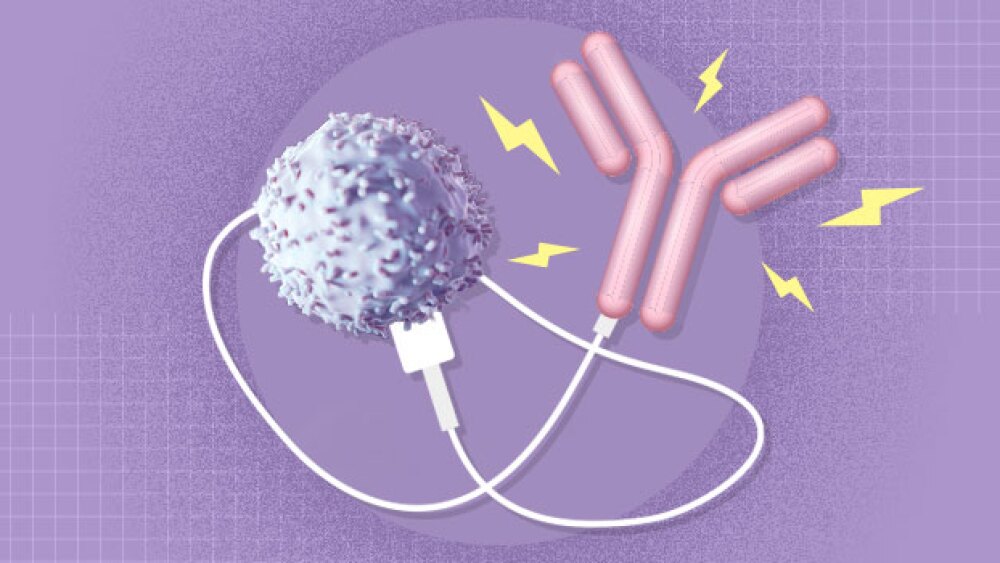Sofusa is a drug delivery platform technology which delivers biologic therapies through the skin directly into the lymphatic system with potential to improve efficacy and safety and reduce the required dosing (as compared to traditional systemic or subcutaneous injections or infusions).
- Sofusa is a drug delivery platform technology which delivers biologic therapies through the skin directly into the lymphatic system with potential to improve efficacy and safety and reduce the required dosing (as compared to traditional systemic or subcutaneous injections or infusions).
- This is the first in-human Sofusa lymphatic delivery of a large molecule biologic for treatment. Additional immune-oncology trials with checkpoint inhibitors such as anti-PD1 and anti-CTLA4 antibodies are in place for solid tumors.
- The first patient, who was a non-responder to Enbrel subcutaneous injections treatment, had a DAS28 score equal to 4.6, with a swollen joint count of 7 and tender joints of 11. After 4 weekly doses of Sofusa-delivered Enbrel, the patient’s DAS28 score dropped by 33%, total swollen joint count by 29%, and tender joint count by 45%, without any serious adverse events or skin reactions observed.
SAN DIEGO, May 19, 2021 (GLOBE NEWSWIRE) -- Sorrento Therapeutics, Inc., . (Nasdaq: SRNE, “Sorrento”) today announced that the first patient has been treated in a Phase 1b proof-of-concept, open-label study to assess the safety and pilot efficacy of Enbrel administered by the Sofusa Lymphatic Delivery System for the treatment of Rheumatoid Arthritis.
Abnormal immune system function is implicated in many conditions such as cancer and autoimmune diseases (e.g., Rheumatoid Arthritis, Multiple Sclerosis and Psoriasis). Sofusa’s nanotopography draped microneedles have been shown to reversibly open tight junctions in the skin and facilitate paracellular and transcellular transport across the epidermis directly into the lymphatic system. In pre-clinical biodistribution studies, these proprietary microneedles and microfluidics system have consistently demonstrated the ability to deliver over 40-fold increases in drug concentration to targeted lymph nodes (with lower drug concentration in systemic organs) when compared to traditional intravenous (“IV”) and subcutaneous (“SC”) injections. After a 1-hour administration with Sofusa, elevated lymph node concentrations have been measured beyond 72 hours.
Clinical study STI-SOFUSA-1003 is focused on patients with moderate to severe Rheumatoid Arthritis. Patients eligible for this study are those who failed to develop an adequate response to Enbrel delivered through SC injections. “While biologic therapy helps many patients with autoimmune conditions, there are many who do not achieve an adequate response. Enbrel is an approved and well-characterized drug for Rheumatoid Arthritis, and by switching non-responding patients to Sofusa-delivered Enbrel, we hope to clearly evaluate the safety and efficacy benefits associated with delivering biologic drugs directly into the lymphatics,” noted Brian Cooley, Senior Vice President, Sofusa Lymphatic Drug Delivery Systems.
Study participants with Rheumatoid Arthritis must be on a stable dose and non-responding on Enbrel 50 mg once weekly for at least 12 weeks before inclusion in the study. Patients start on a Sofusa-delivered Enbrel dose of 25 mg (50% of the normal dose) during the induction phase of the study and may be increased to a Sofusa-delivered Enbrel dose of 50 mg after 4 weeks, if necessary, during the dose escalation phase of the study. Sofusa-delivered Enbrel is administered once weekly for 12 weeks.
The primary objective of this study is the safety and tolerability of the Sofusa Lymphatic Delivery System with Enbrel administered once weekly in patients with Rheumatoid Arthritis. Pilot efficacy is also measured in this study using various composite scores for disease activity, including the DAS28 score, where DAS stands for “disease activity score” and the 28 refers to the 28 joints that are examined in each assessment. “The first patient meeting the inclusion criteria of the study enrolled with a baseline assessment, including ESR value of 6, having a total count of swollen joints of 7 and tender joints of 11, Patient Global Assessment of Disease Activity of 52, and a DAS28 score of 4.58. After just 4 weekly doses of Enbrel 25mg with Sofusa delivery, the patient’s DAS score improved to 3.1, with a total of 5 swollen joints and 6 tender joints, ESR value of 2, and a Patient Global Assessment of Disease Activity of 44. In addition, no serious adverse events have been observed. While this is just the first patient in an open label study, this initial result is quite encouraging and in the right direction. We are looking forward to enrolling more patients into this study,” said Dr. Roel N. Querubin, Principal Investigator, Atlanta Research Center for Rheumatology.
As an exploratory endpoint, this study is also evaluating lymphatic pumping rates via near infrared fluorescence (NIRF) imaging. Improper lymphatic function and reduced lymphatic pump rates have been implicated in several autoimmune conditions1. “In Collagen Induced Arthritic pre-clinical models, we have seen an improvement in lymphatic pumping when delivering Enbrel with Sofusa vs subcutaneous injections. Our hypothesis is that poor lymphatic function may be associated with non-response to systemic treatment. By delivering biologic drugs directly into the lymphatic system, we may improve lymphatic function and provide more direct and sustained exposure to therapeutic targets known to modulate immune responses,” noted Russell Ross, Chief Technical Officer of Sofusa Lymphatic Delivery Systems.
1 Rahimi et. al., Arthritis Research and Therapy, “Lymphatic imaging to assess rheumatoid flare: mechanistic insights and biomarker potential” (2016) 18: 194.
About Sorrento Therapeutics, Inc.
Sorrento is a clinical stage, antibody-centric, biopharmaceutical company developing new therapies to treat cancers and COVID-19. Sorrento’s multimodal, multipronged approach to fighting cancer is made possible by its extensive immuno-oncology platforms, including key assets such as fully human antibodies (“G-MAB™ library”), clinical stage immuno-cellular therapies (“CAR-T”, “DAR-T™”), antibody-drug conjugates (“ADC”), and clinical stage oncolytic virus (“Seprehvir™”). Sorrento is also developing potential antiviral therapies and vaccines against coronaviruses, including COVIGUARD™, COVI-AMG™, COVISHIELD™, Gene-MAb™, COVI-MSC™ and COVIDROPS™; and diagnostic test solutions, including COVITRACK™, COVISTIX™ and COVITRACE™.
Sorrento’s commitment to life-enhancing therapies for patients is also demonstrated by our effort to advance a first-in-class (TRPV1 agonist) non-opioid pain management small molecule, resiniferatoxin (“RTX”), and SP-102 (10 mg, dexamethasone sodium phosphate viscous gel) (SEMDEXA™), a novel, viscous gel formulation of a widely used corticosteroid for epidural injections to treat lumbosacral radicular pain, or sciatica, and to commercialize ZTlido® (lidocaine topical system) 1.8% for the treatment of post-herpetic neuralgia. RTX has completed a Phase IB trial for intractable pain associated with cancer and a Phase 1B trial in osteoarthritis patients. SEMDEXA is in a pivotal Phase 3 trial for the treatment of lumbosacral radicular pain, or sciatica. ZTlido® was approved by the FDA on February 28, 2018.
For more information visit www.sorrentotherapeutics.com
Forward-Looking Statements
This press release and any statements made for and during any presentation or meeting contain forward-looking statements related to Sorrento Therapeutics, Inc., under the safe harbor provisions of Section 21E of the Private Securities Litigation Reform Act of 1995 and subject to risks and uncertainties that could cause actual results to differ materially from those projected. Forward-looking statements include statements regarding the safety and potential efficacy of the Sofusa Lymphatic Delivery System, including for the treatment of Rheumatoid Arthritis; the ability of the Sofusa Lymphatic Delivery System to reduce required dosing of a drug; the potential for the Sofusa Lymphatic Delivery System to improve safety and efficacy and to reduce required dosing as compared to traditional systemic or subcutaneous injections or infusions; the clinical testing of a SOFUSA product candidate; the preliminary results of the first patient in the Phase 1b study to date; the continued enrollment and potential commencement of future clinical trials for a SOFUSA product candidate; the potential for pre-clinical study results to be replicated or continue to show improved clinical safety or efficacy in the current clinical trial and future clinical trials; the potential for preliminary data results to be replicated or continue to show improved clinical safety or efficacy as the ongoing trial continues; the potential for the Phase 1b study to provide data regarding lymphatic pumping rates as an exploratory endpoint; the potential for delivery of biologic drugs directly into the lymphatic system to improve lymphatic function and provide direct and sustained exposure to therapeutic targets; and Sorento’s potential position in the therapeutics industry.
Risks and uncertainties that could cause our actual results to differ materially and adversely from those expressed in our forward-looking statements, include, but are not limited to: risks related to Sorrento’s and its subsidiaries’, affiliates’ and partners’ technologies and prospects and collaborations with partners, including, but not limited to risks related to conducting clinical studies and seeking regulatory approval for the Sofusa Lymphatic Drug Delivery Device; conducting and receiving results of clinical trials; clinical development risks, including risks in the progress, timing, cost, and results of clinical trials and product development programs; risk of difficulties or delays in obtaining regulatory approvals; risks that clinical study results may not meet any or all endpoints of a clinical study and that any data generated from such studies may not support a regulatory submission or approval; risks that prior test, study and trial results may not be replicated in future studies and trials; risks of manufacturing and supplying drug product; risks related to leveraging the expertise of its employees, subsidiaries, affiliates and partners to assist Sorrento in the execution of its therapeutic product candidates strategies; risks related to the global impact of COVID-19; and other risks that are described in Sorrento’s most recent periodic reports filed with the Securities and Exchange Commission, including Sorrento’s Annual Report on Form 10-K for the year ended December 31, 2020, and subsequent Quarterly Reports on Form 10-Q filed with the Securities and Exchange Commission, including the risk factors set forth in those filings. Investors are cautioned not to place undue reliance on these forward-looking statements, which speak only as of the date of this release and we undertake no obligation to update any forward-looking statement in this press release except as required by law.
Contact
Alexis Nahama, DVM (SVP Corporate Development)
Email: mediarelations@sorrentotherapeutics.com
Sorrento® and the Sorrento logo are registered trademarks of Sorrento Therapeutics, Inc.
G-MAB™, DAR-T™, SOFUSA®, COVIGUARD™, COVI-AMG™, COVISHIELD™, Gene-MAb™, COVIDROPS™, COVI-MSC™, COVITRACK™, COVITRACE™ and COVISTIX™ are trademarks of Sorrento Therapeutics, Inc.
SEMDEXA™ is a trademark of Semnur Pharmaceuticals, Inc.
ZTlido® is a registered trademark owned by Scilex Pharmaceuticals Inc.
All other trademarks are the property of their respective owners.
©2021 Sorrento Therapeutics, Inc. All Rights Reserved.





